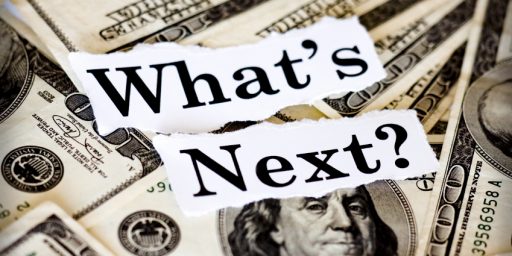Recovery Is Around the Corner. No, It’s Not!
The World Bank is offering a very pessimistic economic forecast.
In a bleaker assessment than those of most private forecasters, the World Bank predicted Sunday that the global economy would shrink in 2009 for the first time since World War II.
The bank did not provide a specific estimate, but bank officials said its economists would be publishing one in the next several weeks.
Until now, even extremely pessimistic forecasters have predicted that the global economy would eke out a tiny expansion but had warned that even a growth rate of 5 percent in China would be a disastrous slowdown, given the enormous pressure there to create jobs for the country’s rural population.
The World Bank also warned that global trade would contract for the first time since 1982, and that the decline would be the biggest since the 1930s.
The G10 Banks, by contrast, point out that dire forecasts aren’t “pricing in” positive eocnomic developments, and that a turnaround is on its way.
The global economy is “approaching” a pick-up point as positive elements that could fuel growth have yet to be priced in, G10 central bankers said Monday.
“We have a number of elements that are suggesting that we are approaching the moment where you would have a pick up,” European Central Bank head Jean-Claude Trichet said in his capacity as spokesman for the G10 central bankers meeting at the Bank for International Settlements (BIS).“I would say that we are at a level where the positives are not necesarily fully priced in,” he added.
As far as I can determine, the World Bank’s view comes from observing patterns in a cup after drinking a nice spot of tea. The G10, I’ll wager, went the more traditional route of butchering an animal and reading its entrails.
Image credit: mtsofan’s photostream under a Creative Commons License.





As I’ve said before economics is a descriptive science like paleontology rather than a predictive one like physics.
Well, my personal prediction on this is fed by three factors:
a) The US economy has not yet ‘hit bottom’ – it will get worse before it gets better
b) China’s economy is still going down as well, regardless of what info the central gov’t releases
c) Most other economies around the world have yet to be really hit by the ripples of the US’ and China’s problems
Therefore, I would not expect to see any significant sort of recovery, here or elsewhere, during 2009 at all. Call me in 6 months, and we’ll see where we are for 2010.
Dave,
I see it more like predicting the weather. It’s pretty easy in the short term, if you know what you’re looking at (I think it’ll rain today). But the larger the timeframe (and more specific your predictions), the farther off-base you’re likely to be (2011 will have an average winter temp of 30.6 degrees).
Ask any economist to predict the closing value of a particular stock tomorrow. There is no timeframe short enough to describe the prediction horizon in the current state of economics.
Maybe economics needs its own computer model so “the science can be settled” a la AGW.
Needs a model?! They’ve got dozens of them. The problem is that basic questions in macroeconomics are not settled.
Alex and Dave, have you read either of Taleb’s books? Fooled by Randomness is a lighter read, and more focussed on these sorts of economic problems.
To give one reduction: Avoid predictions, but if you can’t bear it and have to make them, at least be fickle. Discard ideas as soon as they fail.
Hoodlumman, the difference between a physical model and a social one is that the later ones must include volition. The actors are … actors. A physicist’s weight dropped off a build cannot decide to fall or not (well neither can an actor dropped … but it is a human question whether or not to base-jump).
AGW is actually interesting because it spans the two types of domain. CO2 molecules can’t decide how to behave in an atmosphere, but we humans can certainly decide how much to insulate our homes.
Far future models of AGW are actually economic models in good part. They have to know how large the economy will be, and how much energy it will consume, at what efficiency, etc
(I think we know enough about AGW to do the simple and inexpensive things now. That is the rational moderate course, to my thinking. The people who want to spend zero, or want to spend a trillion, in 2009 or 2010 … are not being so moderate or so rational.)
@Dave
Luis W. Alvarez (not to be confused with Luis J. vide infra) once described palentologists as more akin to stamp collectors…wonder what he’d have said about economists.